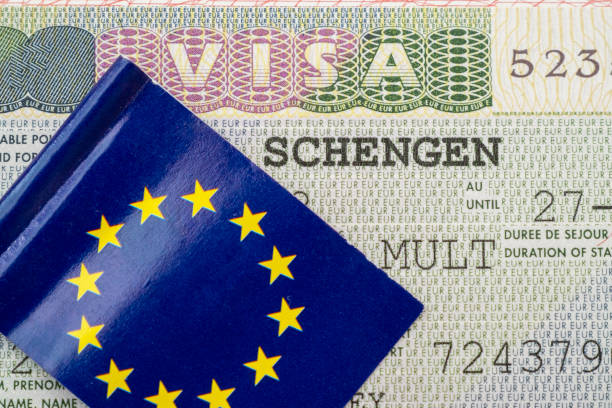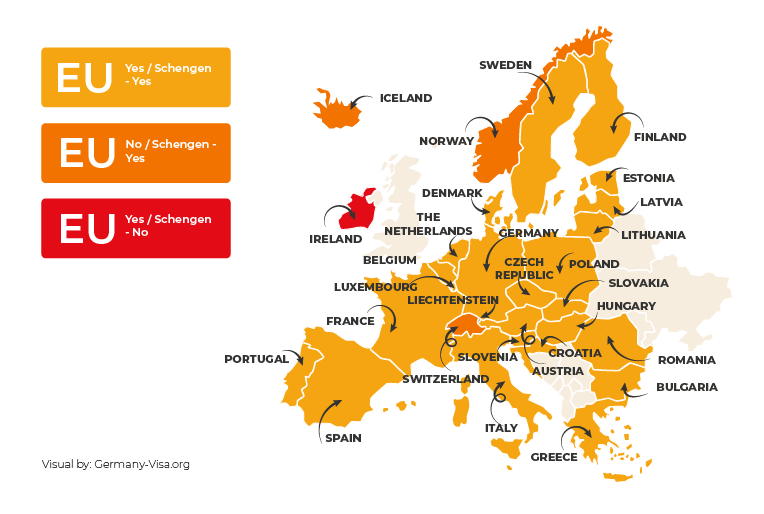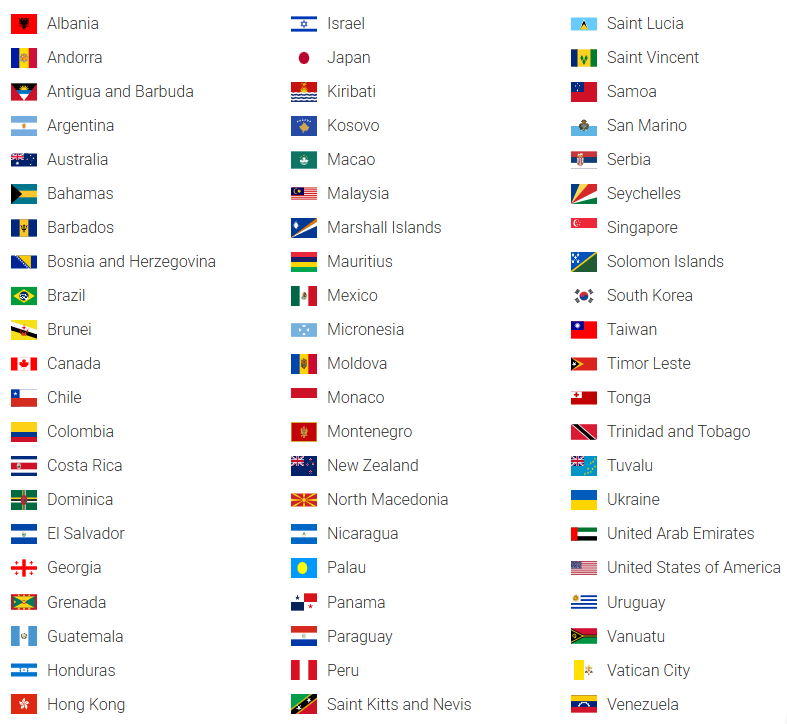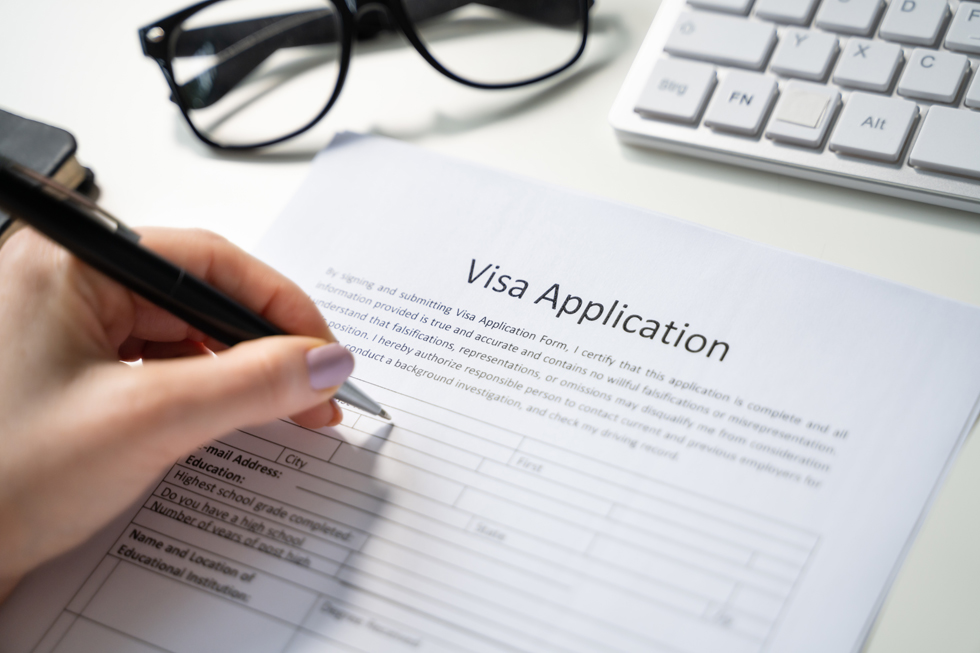If you’re going to Germany and either live in or are visiting the United States, one of the first things you want to know is, “Do I need a visa?”
It’s not as cut and dry as a simple “yes” or “no” — suffice it to say, it really depends on your nationality, the kind of passport you have, and how long you are going to be hanging around Germany.
In this article, we’ll break down who does and doesn’t need a visa to enter Germany from the U.S. and how to go about it if you do.
Whatever your nationality is, it is best to know the entry regulations in Germany so that you are fully prepared before your trip.

Do I Need a Visa to Travel to Germany From USA
The answer depends largely on your nationality.
If you’re a U.S. citizen, you’re in luck as there’s no visa requirement to visit Germany as a tourist (for up to 90 days), for business, or for transit.
This falls under the Schengen Area regulations, so, as an American, you can visit not only Germany but much of Europe visa-free.
If you are a Non-U.S. citizen and are merely residing in the United States, such as those with permanent residence, students, or work visas.
Your visa needs will be determined by your nationality, not your U.S. residency.
Most nationalities still require a Schengen visa to visit Germany (and other countries included in the Schengen Area).

So, in short:
U.S. passport holders can visit visa-free for short trips.
Other nationals need to check their country’s visa rules for Germany, regardless of living in the U.S..
Understanding this distinction early will help you avoid surprises and ensure a smooth trip.
Starting from April 2027, travellers who are currently exempt from visas will have to get an online travel authorization (ETIAS) before entering Germany.
Who Needs a Visa to Enter Germany?
If you're wondering whether you need a visa to travel to Germany, the real question is whether you're a citizen of a visa-exempt country.
Here are the rules and regulations to consider:
Visa-free entry to Germany
Long-term visa-free countries
If you’re an EU/EEA citizen (or from the Schengen area), however, you are allowed to stay in Germany longer than 90 days as long as you are in compliance with the regulations in your home country.
Visa-Free Countries for Short-Term Travel
If you are a citizen of any of the following countries, you can visit Germany visa-free for a short stay of up to 90 days as long as you have a valid passport:

If you want to stay in Germany for more than 90 days, there are two special cases:
If you are a citizen of the USA, Canada, Israel, Australia, Japan, New Zealand, South Korea, and the UK, you wish to stay longer than 90 days, you need to get a residence permit at the German authorities’ foreigners office. If you plan to work in Germany, you need to get a work visa or residence permit.
If you’re a resident of Andorra, Brazil, El Salvador, Honduras, Monaco, or San Marino and will be in Germany for more than 90 days, you’ll need a long-term residence visa (Type D). You’ll have to apply for the visa at a German embassy or consulate before you go. Once you’re in Germany, you’ll be required to apply for a residence permit.
Countries Without Visa Exemption
If your country is not covered in the chart above, then you need a visa.
The type of visa you need will depend on your nationality and the reason for your visit to Germany.
Depending on your country of citizenship, the duration of your stay, and the reason for your visit, the conditions and application process for a visa for Germany can vary.

The steps below are a general overview of the process for obtaining a German visa.
Germany Visa Application Process
Fill Out the Visa Application Form
Applicants must complete the Schengen online visa application form via the VIDEX system of the German Foreign Ministry.
You’ll need to complete the online form based on your lengths of stay and entry visa type:
Schengen Visa (Type C): https://videx.diplo.de/videx/visum-erfassung/videx-kurzfristiger-aufenthalt
For Long-Term Stays(Type D): https://videx.diplo.de/videx/visum-erfassung/videx-langfristiger-aufenthalt
You’ll need to print off the form and sign it in order to take it with you to the embassy or consulate.
Prepare Your Documents
Typically, you will need the following documents:
1. The German visa application form with correct answers and reason for your visit
2. A passport that will be valid for three months beyond your departure date from Germany
3. Two photos adhering to the German visa specs
4. Proof of accommodation in Germany
5. Plane Tickets or Proof of Departure from Germany
6. A Schengen-country-standard travel health insurance policy
7. Proof of funds to support yourself while in Germany.

Schedule an Appointment at the Embassy/Consulate
Visas are by appointment only at an embassy, consulate or visa application center.
You can generally schedule your appointment online according to the German mission in your home country. Sometimes you may be required to go in person and make your appointment.
You can find more information about the visa centres in the relevant regions on the official website of the German Foreign Ministry: https://digital.diplo.de/visa
Attend the visa interview
On the day and time of your appointment, you will hand in your documents and have an interview.
Definitely be punctual, as if you are a single minute late, your reservation is glaringly void.
You can find more information on visa processing on the German Foreign Affairs’ official website: https://www.auswaertiges-amt.de/en/visa-service/visabestimmungen-node
Travel Tips for Visiting Germany
Do not overstay
If you overstay your visa waiver or visa period, you could risk being banned from re-entering the Schengen Area.
If you’re going to be multi-country staying with other Schengen countries, check them too.
Follow Germany's strict rules
Jaywalking and skipping fares can lead to expensive fines.
You must adhere to the neighborhoods’ residential courtesy hours.
Visa processing time
You should apply for the visa in advance to give plenty of time for your visa to be processed a minimum of 3–4 weeks before you want to travel.
The amount of cash you carry needs to be declared
When coming into or out of Germany and you have over 10,000 euros in cash or cryptocurrency, you are required to declare it to customs.
Failure to declare when required can charge you a fee or, in extreme cases, your items.
Pay attention to the power voltage and socket type
Germany uses 230 Volts and a plug of type C or F. You will need a voltage converter and plug adapter in order to use U.S. appliances.
You can purchase a European travel conversion plug to make charging easier.

FAQ
1. Are visa fees refundable if my application is denied?
No, fees are non-refundable.
2. Is it safe to book flights and hotels before my visa is approved?
It is best to book a “on-hold” or refundable fare instead. Some embassies insist on having a flight itinerary; however, there’s no guarantee you’ll receive the visa.
3. Are credit cards accepted everywhere?
Not always. A lot of small shops really only take cash or EC (debit) card.They take cash. Be sure to have some euros on hand.
4. Can I use U.S. prescription medication in Germany?
Carry medication in the original packaging, with the prescription. Some U.S. medications are not allowed; do research.
Conclusion
Traveling to Germany from the USA can be simple and easy, as long as you’re organized.
If you’re a U.S. citizen or from one of the countries that doesn’t need a visa for a short stay, you have nothing to worry about.
If you don’t fit into either of those categories, you’ll need to get the appropriate visa before you go, so get prepared and make sure to have your paperwork in order.
Germany is such a lovely and vibrant country and everyone should get to experience it!
